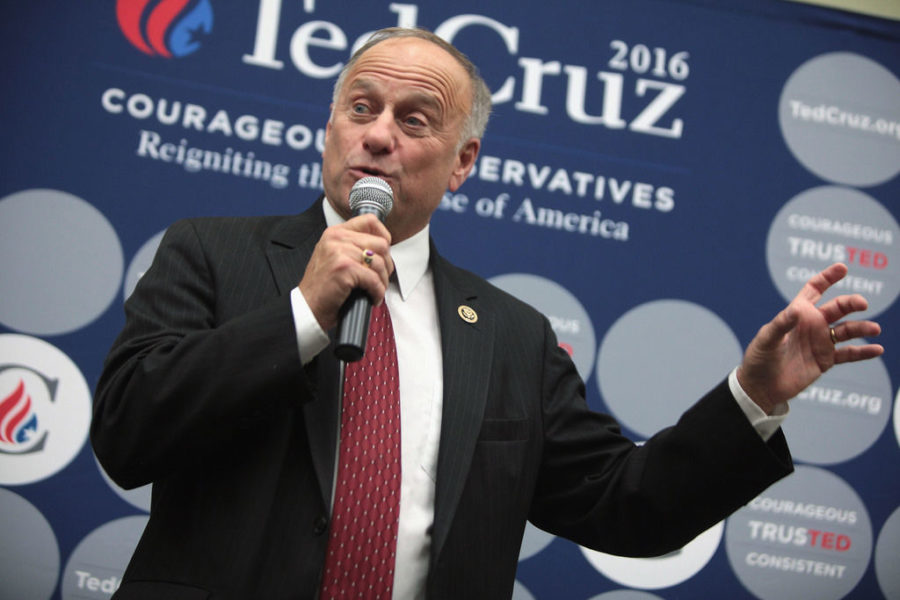- News
- News / Politics And Administration
- News / Politics And Administration / Campus
- News / Politics And Administration / City
- News / Politics And Administration / State
Steve King heads into 2020 primary facing competitive race
Rep. Steve King, R-Hull
August 25, 2019
Rep. Steve King, R-Storm Lake, faces three primary challengers in his bid for renomination in Iowa’s 4th Congressional District. This is the first time he faces a serious challenge for the Republican nomination since he was first elected in 2002.
The district, which covers most of northwestern Iowa — including Story County, and therefore the Iowa State campus — is the most Republican-leaning congressional seat in Iowa. President Donald Trump carried the district by 27% in 2016.
The Republican candidates in the race are King, veteran Bret Richards, who said in August he has already qualified for a place on the Republican primary ballot next May, former Iowa Rep. and current Woodbury County Supervisor Jeremy Taylor and Iowa Sen. Randy Feenstra, R-Hull.
Mack Shelley, Iowa State professor and chair of the political science department, said Feenstra is a “very serious challenger, there’s no question about that.”
“Taylor has some background, being a former representative and [a county supervisor],” Shelley said. “Richards seems to be running mainly on his army background, it’s a little hard to see him as a serious challenger.”
In recent years, primary challengers have been largely unsuccessful. Of the hundreds of primary challengers against incumbent members of congress in the 2018 midterm election, only four incumbents lost their primaries, two Democrats and two Republicans.
“Feenstra probably has the best chance of actually winning a primary,” Shelley said.
However, if no candidate receives 35% of the vote in a primary in Iowa, a party convention is held to decide on a nominee. Shelley said the people who show up to a Republican convention in Iowa would be “hardcore conservatives” and it would be hard to say whether that environment would favor Feenstra or King.
With more than 30,000 students at Iowa State in recent years, the Ames area has become home to a crucial voting bloc.
“You have a lot of students … let’s assume we have about 33,000 students,” Shelley said, adding the caveat that student-aged populations turn out at lower rates than older segments of the population.
In the 2018 midterm election in Iowa’s 4th Congressional District, 13.5% of all of the votes cast in the district came from Story County, more than any other county in the district.
On Saturday, Feenstra quote-tweeted the Iowa GOP, who had posted about their registration efforts at Iowa State.
“Great work [Iowa Republicans] Every vote matters,” Feenstra said.

















